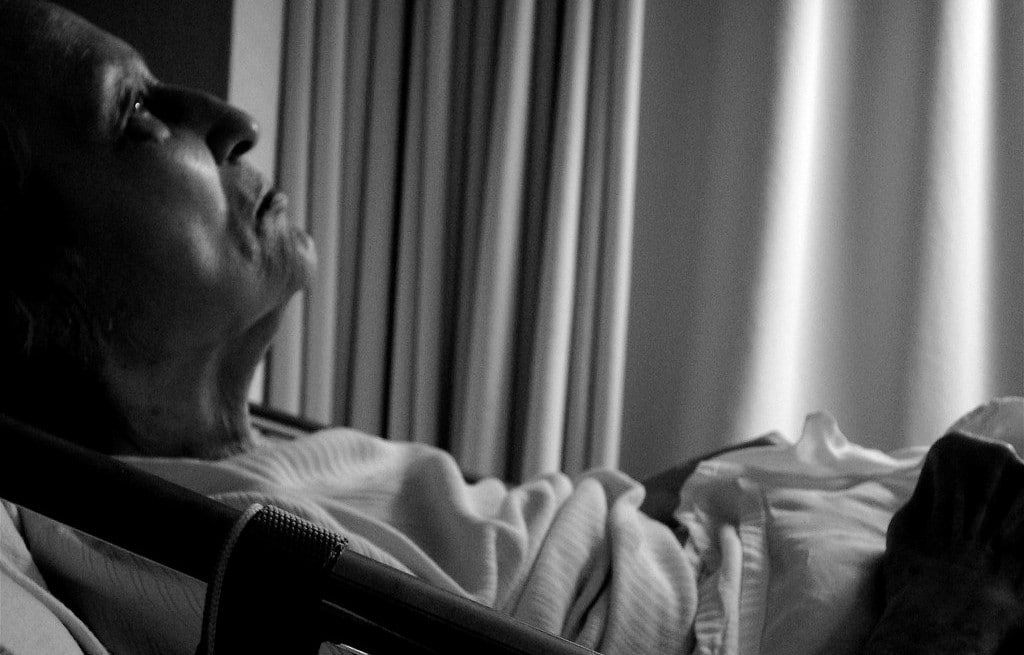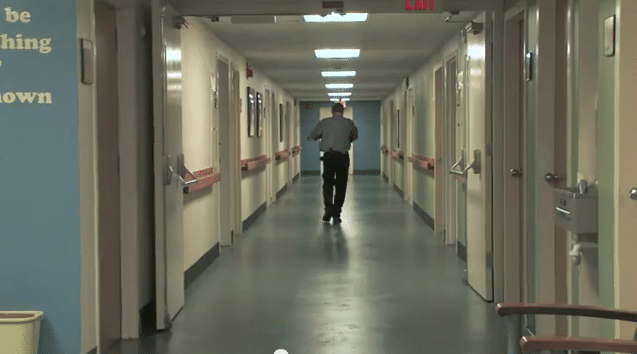
Image Source: Flickr user Alyssa L. Miller
For the past three years, system scleroderma has consumed John Saul’s life. The incurable autoimmune disorder has not yet spread to his lungs or kidneys, but if it does, death is nearly certain. But John isn’t scared – not anymore. As one of the first participants in Dr. Philip Wolfson’s new study investigating the impact of MDMA-assisted psychotherapy on end-of-life anxiety, he has spent the past six months moving slowly from a place of fear to one of acceptance, hope, and love. In an interview with the San Francisco Chronicle, he described one of the most profound moments experienced during the course of the therapy:
I had a vision of my adult, courageous self without a molecule of fear, finding this cowering, shivering little child, another version of myself, and taking him under his wing and saying, ‘Everything is going to be OK.’
Andy Gold, an attorney battling colon cancer, has born witness to both Saul’s transformation and his own. Andy sought out MDMA-assisted therapy after developing overwhelming anxiety following his cancer diagnosis. “I felt lost, like I had no purpose,” he says. But MDMA changed that, opening up new pathways to psychological healing, growth, and deep comfort. “[MDMA] gives you the ability to look inside and go through the closets of your life. It gives you access to your emotional content.”
The Transformative Potential of MDMA
Dr. Wolfson was first introduced to MDMA in the early 1980s while seeking out alternative healing methods for a particularly hard-to-treat client. At the time, MDMA was legal and fellow psychiatrist offered Dr. Wolfson and his wife a guided MDMA session to explore the drug as a therapeutic experience. “It was warm, it was easy to stay in touch, and it was in many respects – as it came to be know – ‘the love drug,’” Dr. Wolfson said in a 2014 interview. Immediately recognizing the revolutionary potential of MDMA-assisted psychotherapy, he began using MDMA both in his professional practice and in his personal life to facilitate deep process work that opened the door to expanded levels of consciousness and well-being.
While he saw profound transformation and self-discovery in his patients, he also came to be intimately familiar with the way MDMA-assisted psychotherapy can help people cope with death.
“It was a very valuable empathetic support in our lives and our ability to cope with a terrible illness,” says Dr. Wolfson of his MDMA-led journey toward healing. “It was a fantastic way of eliciting new kinds of consciousness and reaction.” The experience introduced the idea of using MDMA to alleviate end-of-life anxiety in those facing life-threatening illnesses and last year, the DEA finally approved his application for a clinical study that will test the safety and efficacy of using MDMA to treat anxiety in people with life-threatening illnesses.
End-of-Life Anxiety and the Limits of Available Treatments
Fear of death is a nearly universal experience, but for most of us, death remains a distant and nebulous threat, however inevitable. When you are diagnosed with a life-threatening illness, however, death becomes an all too real and immediate presence.
For many, experiencing a life-threatening illness elicits a host of painful emotions and brings to the surface overwhelming and deep-rooted fears. One study of terminally ill cancer patients found that 17% met the diagnostic criteria for major depression and many more report feeling an unbearable sense of anxiety and helplessness. As a result, you may lose interest in things you used to enjoy, experience sleep disruptions and loss of appetite, self-isolate, suffer from obsessive and intrusive thoughts, and even contemplate suicide. These symptoms can greatly interfere with your ability to function and damage your quality of life, robbing you of joy, hope, and acceptance.
Unfortunately, currently available treatments often offer little in the way of relief. “It’s really tough doing psychotherapy with people who have anxiety disorders because when you get to the heart of the matter it causes a panic attack,” says Dr. John Halpern, a psychiatrist at Harvard University’s McLean Hospital who’s currently researching the effects of MDMA on terminal cancer patients. “For somebody who has a particularly gruesome time trying to talk about important end-of-life issues, it bubbles into anxiety and nothing gets achieved.”
Approved anti-anxiety medications, such as benzodiazepines, may alleviate symptoms, but the doses needed to alleviate acute distress often also leave patients too sedated to engage in a meaningful and productive therapeutic process. As a result, “these people have a choice of being over-sedated and not having anxiety or being alert and suffering panic attacks.” MDMA-assisted psychotherapy, however, offers a third way.
The Effects of MDMA-Assisted Psychotherapy
MDMA-assisted psychotherapy is a two-step process in which the psychedelic state is used to facilitate psychotherapeutic engagement, opening up the potential for deep healing typically inaccessible to us in our everyday lives.
Although the exact mechanisms by which MDMA acts on the brain are not fully understood, Dr. Wolfson says that the key to its efficacy is the way it affects two neurotransmitter sites that “create[s] empathy for oneself and others and a greater tolerance for negative and traumatic experiences.”
In addition to modulating neurotransmitter activity, MDMA acts directly on the amygdala, the area of the brain involved in emotional regulation. As a result, MDMA creates a psychological openness that gives us greater access to difficult emotions and reactions. This phenomenon is experienced even by recreational users, who are frequently overcome with a sense of love, happiness, tranquility, emotional expansiveness, and connection. As Dr. Wolfson notes in a 1986 study, MDMA is capable of producing a “warmth and closeness that [generates] a sense of hopefulness, some calm in the storm,” even for those who have extensive histories of trauma, anxiety, and distrust.
To alleviate end-of-life anxiety, MDMA-assisted psychotherapy harnesses the possibilities of this emotional access by guiding you through an exploration of your fears and facilitating deeper self-awareness, greater distress tolerance, and the ability to accept difficult emotions, experiences, and thoughts. “It does not take you away from the pain, but rather through the pain,” explains Rick Doblin, founder of the Multidisciplinary Association for Psychedelic Studies, the organization funding Dr. Wolfson’s research.
As opposed to the standard 50-minute psychotherapy sessions, MDMA-assisted therapy can last for five hours or more, giving patients the chance to spend sustained, meaningful time within a nurturing therapeutic environment in which thoughts, feelings, and experiences can be explored safely. Although therapy sessions can only be held a handful of times over the course of several months, “the breakthroughs inspired by the drug persist, suggesting that it has the potential to permanently alter a patient’s perspective on the crises they seek to overcome.”
The Future of MDMA Research
The ultimate goal of Dr. Wolfson’s research is not simply to find out if MDMA-assisted psychotherapy is effective in the treatment of end-life-life anxiety — he and thousands of others has already witnessed its efficacy. Rather, he hopes that the study will be a step toward FDA approval of the drug for therapeutic use, moving it out of the illicit Schedule 1 category. While the move may have little effect on experienced users who currently seek out the drug on the underground market, FDA approval would allow those facing life-threatening illnesses to safely benefit from the tremendous healing potential of psychedelic therapy.










